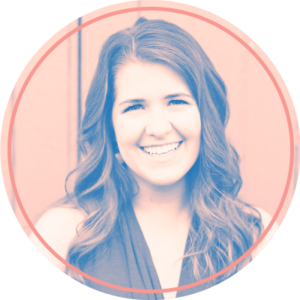Where are you from? 
I grew up in a small town in south Louisiana with a unique name—Cut Off, LA.
What’s your specialty or area of expertise?
I am trained as a pediatrician and am currently completing a fellowship in Adolescent and Young Adult Medicine. I continue to care for kids from birth through their toddler years, school age, and beyond, but I spend most of my time working with teenagers and young adults.
What first inspired you to become a doctor?
I came to the field of medicine through what I’ve always considered as a series of unexpected but fortuitous events. I first became interested in medicine after joining a campus EMS organization in college. Though I originally joined to make new friends and get a chance to drive an ambulance with lights and sirens blasting (who doesn’t dream of doing that someday?), I eventually discovered that I had a passion for caring for patients.
After college, my life took a detour and I spent two years teaching high school math as a corps member with Teach for America. My time spent in the classroom exposed me to the harsh realities that young people in our country face every day—educational inequality, poverty, violence—as if just being a teenager isn’t hard enough!
Medicine eventually became an avenue through which I could combine my love of patient care that I found as an EMT with my lifelong passion for social justice that was clarified through my teaching experience.
What story about one of your patients most sticks with you?
I sometimes encounter a young person in clinic who just stands out—it may be that patient’s drive to succeed, his ability to overcome obstacles, or her humor despite difficult life circumstances. Tanya (a pseudonym) was one of these patients for me. She was in her mid-20s. At our first visit together, she told me about a number of recent stressors in her life. She had recently been laid off from her job of five years, had a close relative pass away, and was in the process of moving apartments. At the same time, she had mustered the strength to look forward and plan. She had an upcoming job interview. She had also decided she wanted to wait to have children until she was more professionally and financially secure in her new job. She had thought through this before her visit and, even though she was on birth control pills, wanted to get an IUD because she heard it was more effective method of contraception. As we prepared the equipment to place her IUD, we discovered that Tanya was pregnant.
Our conversation quickly shifted from discussing her relief that she wouldn’t have to struggle to pay rent this month to figuring out how to find the money needed to terminate her pregnancy. Unfortunately, abortion, which is a safe and legal medical procedure, is not covered by her insurance due to the Hyde Amendment. If this young woman was in different circumstances—if she came from a family with financial resources or if she lived in a state that made provisions for insurance to pay for this service—we wouldn’t have needed to have that difficult conversation about how she may lose her apartment if she used her rent money to pay for the abortion. It pains me to see this struggle play out over and over again—women having to decide whether to pay for diapers and food to support their current children or to pay for an abortion. This is an impossible choice that no woman should ever have to make.
What current policy issue especially motivates you to be an advocate?
Equitable access to care. There seems to be a constant but insidious chipping away of access. These seemingly isolated policies and restrictions have huge implications for patients and disproportionately affect specific populations—children, women, patients with mental illness, and low-income families, just to name a few. Lately, it feels like each new day brings a new TRAP law [Targeted Regulation of Abortion Providers, a law that singles out abortion providers from other health care providers with additional, burdensome requirements], cut to Medicaid, or threat to remove coverage for essential health care benefits or to dismantle the Affordable Care Act altogether.
Who is your social justice hero?
Right now, I’m feeling particularly grateful for the “everyday warriors” who work at clinics dedicated to comprehensive reproductive health care for women, such as Planned Parenthood. These people show up to their clinics day in and day out, sometimes having to walk past a barrage of protesters, to provide women with essential health care. I admire their steadfast dedication to their work.

